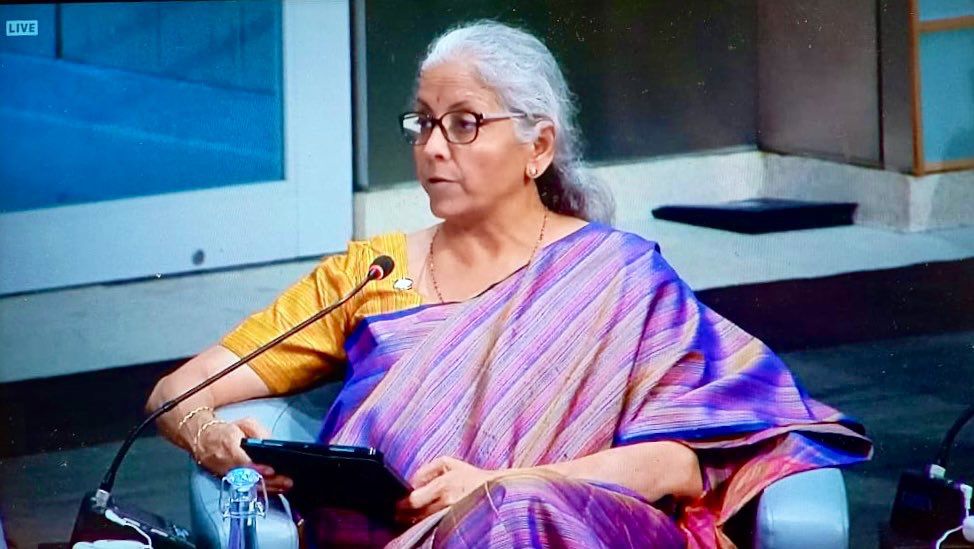NewsGate Press Network
Union Finance Minister Nirmala Sitharaman on Saturday the 15th of October 2022 urged the World Bank to avoid an unidimensional view of subsidies and to differentiate between distortive subsidies and targeted support to vulnerable households.
News agency UNI is reporting that finance minister who was speaking at the World Bank Development Committee (DC) meeting in Washington DC said by providing free LPG connections under the Pradhan Mantri Ujjwala Yojna over the last six years, India has ensured that access to clean cooking methods achieved near saturation for women in India.
This has made a definitive contribution in improving India’s performance on SDGS 3, 5 and 7, she said.
The Minister told the Committee Members that while the quest for energy and food security necessitates non exclusion of fossil fuels from our energy mix, India has set up its first pure hydrogen producing plant as well as its first 2G bioethanol refinery this year.
She pointed out that India has set up its first pure hydrogen producing plant as well as its first 2G bioethanol refinery — also this year.
Sitharaman suggested three clear opportunities for the World Bank Group.
First, promoting behaviour change to increase energy efficiency and to reduce food losses.
Programmes like the Lifestyle for the Environment (LiFE) launched by the Indian Prime Minister can mainstream responsible consumption behaviour, she said.
Second, she said, is helping all client countries in arranging concessional financing and technology transfer in areas like renewable and green energy.
And third, supporting regional integration not only through the International Development Association (IDA) but also through International Bank for Reconstruction and Development (IBRD).
On financing climate and development goals, the Minister said the world must never lose focus on the internationally agreed basic principle of common but differentiated responsibilities.
‘This necessitates avoidance of a one-size fit-all approach,’ she said.
Sitharaman said mitigation of risks is essential for crowding in private capital.
While welcoming the launching of SCALE, the Minister encouraged the World Bank to increase the share of grants from the current 5 per cent level and to work below the country level to support projects with huge climate impact beyond the national borders.
She exhorted for prioritising consultations with key stakeholders throughout the formulation of CCDRS and following the “One Bank” approach are critical to their success.
While urging the World Bank to take the lead and also help build consensus across MDBS, the Minister pushed for the recommendations of the Independent Review of the MDB Capital Adequacy Frameworks commissioned by the G20 holding the key for sustained financing.


Comments are closed for this post.